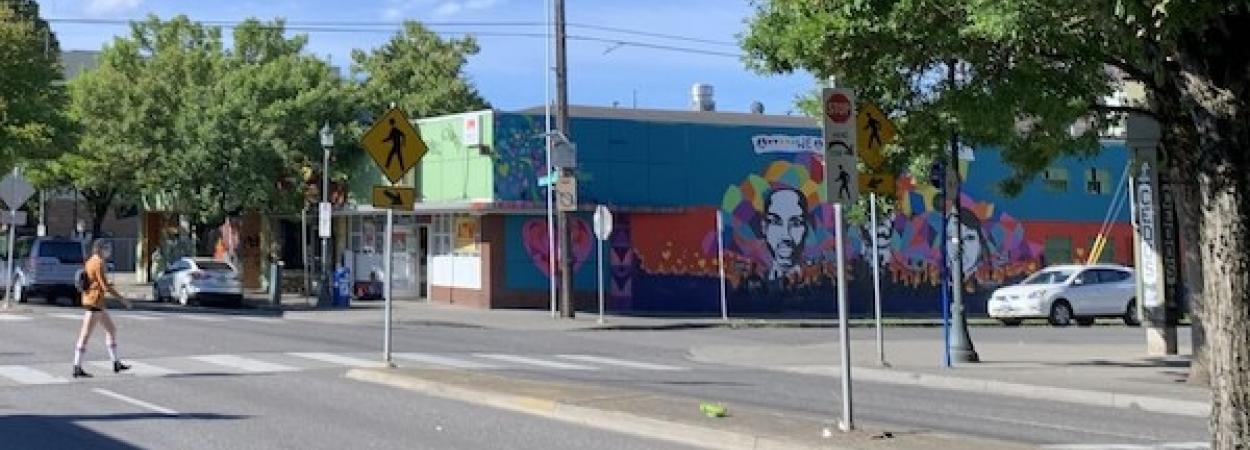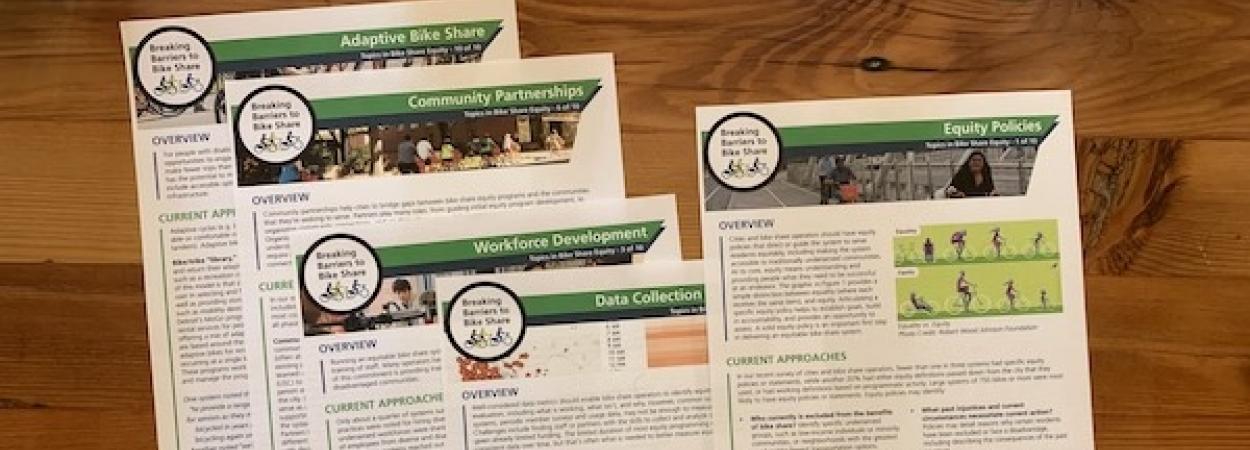 |  |  |

Following the successful finish of Portland State's first-ever remote Spring Term, we're taking a moment to highlight the projects of students in transportation engineering and planning who worked through unusual pandemic conditions. See below for a recap of transportation student work that was wrapped up at the end of the 2019/2020 academic year. Last year's graduating masters of urban studies students focused on human-powered transportation, and this year's projects address a range of topics from improved active transportation infrastructure to equity and access.
------
Every year, graduating Master of Urban and Regional Planning students participate in a workshop project where they develop planning pro…
Read More
MLK Boulevard in Portland, OR. Photo by Cait McCusker
Suburban Black Poverty in East Portland: The Role of Transportation in Making Ends Meet
Steven Howland, Portland State University
The historically Black district of Albina in Portland, Oregon, due to racist real estate practices, faced mu…
Read More
National Scan of Bike Share Equity Programs
John MacArthur, Nathan McNeil and Joseph Broach, Portland State University
Last year, Portland State University’s Transportation Research and Education Center (TREC) released a 130 page evaluation comparing equity-oriented programs from over 70 U.S. bike share systems across the U.S. Bike…
Read More
Learn more about Jaime Orrego-Oñate: Follow him on Twitter or connect on LinkedIn
Jaime Orrego-Oñate, a civil engineering PhD candidate at Portland State University (PSU), has been awarded a $15,000 Oregon Sylff Fellowship for International Research. As a Chilean national completing a Ph.D. in transportation engineering at PSU, Jaime is poised to promote the expansion of American research abroad into countries that lack research resources. His research focuses on understanding the role of the urban form in active transportation decisions. With his work, he hopes to address an information gap between pedestrians’ motivations to walk and how urban planners can encourage this behavior. This is of particular importance in the context of Jaime's home region, Latin America, where walking h…
Read More
Photo by Pav_1007 on iStock
Jaclyn Schaefer, Miguel Figliozzi, and Avinash Unnikrishnan; Portland State University
The new article Evidence from Urban Roads without Bicycle Lanes on the Impact of Bicycle Traffic on Passenger Car Travel Speeds published in Transportation Research Record, the Journal of the Transportation Research Board, demonstrates that bicycles do not significantly reduce passenger car travel speeds on l…
Read More